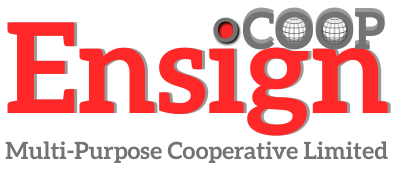A U.S.-Africa Partnership for Sustainable Development
Overview
The Project 50-50 Initiative is a bold and transformative program that invites each U.S. state governor to sponsor and fund an Ensign Community Enterprise Project in an African country of their choosing. This initiative seeks to establish strong economic, humanitarian, and diplomatic ties between U.S. states and African nations through direct investment in critical sectors such as education, healthcare, agriculture, clean water, renewable energy, and infrastructure.
By participating in Project 50-50, U.S. state governments will not only support sustainable development in Africa but also open doors to economic partnerships, trade opportunities, and global leadership in corporate social responsibility. This initiative is built on the foundation of collaboration, mentorship, and shared prosperity, ensuring that every project delivers long-term impact, economic empowerment, and cross-continental growth.
Through this program, governors will have the opportunity to leave a lasting legacy—one that extends beyond their state borders and contributes to the global community. By aligning their state’s expertise and resources with Africa’s development needs, they will create thriving communities while fostering strong diplomatic and economic relationships between the U.S. and Africa.
Objectives
- Foster U.S.-Africa Economic and Diplomatic Ties – Strengthen relationships between U.S. states and African nations through economic cooperation and development.
- Empower Local Communities – Create jobs, improve infrastructure, and support sustainable community growth through targeted enterprise projects.
- Enhance Global Leadership – Position participating U.S. states as leaders in international development and corporate social responsibility.
- Promote Sustainable Development – Address critical needs in education, healthcare, clean water access, renewable energy, and environmental sustainability.
- Encourage Public-Private Partnerships (PPPs) – Leverage support from businesses, philanthropists, and organizations to co-fund and mentor projects.
- Strengthen Trade and Investment Channels – Facilitate future trade agreements and business collaborations between U.S. states and African markets.
- Provide Workforce Development and Skills Training – Equip local African communities with vocational skills, entrepreneurship programs, and employment opportunities.
- Expand Early Years, Primary, and Secondary Education – Improve access to quality education through school infrastructure projects and teacher training.
- Tackle Environmental Challenges – Support projects focused on desertification control, erosion management, afforestation, and clean energy solutions.
- Drive Innovation and Technological Advancements – Introduce innovative technologies in agriculture, health, and renewable energy to enhance development efforts.
Key Focus Areas for Sponsorship
Governors will sponsor projects in high-impact areas such as:
- Economic Development (entrepreneurship incubators, industrial hubs, business development initiatives)
- Agriculture & Food Processing (processing plants, irrigation systems, mechanized farming, food security programs)
- Healthcare & Sanitation (mobile health clinics, drinking water supply, maternal and child health initiatives)
- Education & Workforce Development (primary and secondary schools, vocational training centers, digital literacy programs)
- Infrastructure & Energy (renewable energy plants, electrification projects, digital connectivity hubs)
- Environmental Sustainability (deforestation prevention, erosion control, desertification mitigation, clean energy initiatives)
- Oil and Gas Exploration & Mining (sustainable resource extraction, refining plants, investment in Africa’s natural resources)
- Waterways and Rural Development (construction of bridges, rural road networks, and sustainable urban planning)
Implementation Strategy
Phase 1: Strategic Partnerships and Stakeholder Engagement
- Engage U.S. state governors, legislators, African governments, local leaders, businesses, and philanthropic organizations.
- Build strategic alliances with universities, corporations, and nonprofit foundations.
- Conduct high-level meetings and diplomatic discussions to formalize partnerships.
Phase 2: Project Selection and Customization
- Each governor selects a project aligned with their state’s strengths and Africa’s needs.
- Identify project locations based on economic viability and local demand.
- Develop project blueprints and implementation roadmaps.
Phase 3: Fundraising and Resource Mobilization
- Leverage state budgets, corporate sponsorships, and philanthropic contributions.
- Establish Public-Private Partnerships (PPPs) to drive co-investment.
- Introduce tax incentives and recognition programs for sponsors.
Phase 4: Project Execution and Monitoring
- Deploy local project management teams in Africa.
- Use digital dashboards and independent auditors to ensure transparency.
- Provide workforce training and mentorship programs.
Phase 5: Evaluation, Scale-Up, and Sustainability
- Conduct impact assessments and publish annual reports.
- Scale successful projects into multiple African nations.
- Establish permanent U.S.-Africa trade and investment agreements.
Expected Outcomes
- Improved Economic Development – New businesses, increased investment, and job creation in African communities.
- Strengthened U.S.-Africa Relations – Enhanced diplomatic ties and trade agreements between U.S. states and African nations.
- Poverty Reduction and Community Growth – Sustainable projects that empower local populations.
- Increased Access to Education – Improved schooling infrastructure and digital learning tools.
- Better Healthcare and Sanitation – Access to medical facilities, clean water, and sanitation projects.
- Technological and Infrastructure Advancements – Modernized roads, energy plants, and digital connectivity.
- Agricultural Productivity and Food Security – Expansion of food processing plants and mechanized farming.
- Environmental Protection and Sustainability – Deforestation control, erosion management, and renewable energy projects.
- Workforce Development and Entrepreneurship – Vocational training programs and job creation initiatives.
- Long-Term Trade and Investment Opportunities – Establishment of sustainable markets between U.S. states and African enterprises.
Call to Action
The time to act is now! Project 50-50 Initiative presents a historic opportunity for U.S. state governors to forge lasting partnerships with African nations, transforming lives while fostering economic growth and diplomatic goodwill. By sponsoring Ensign Community Enterprise Projects, governors will play a direct role in addressing critical challenges such as poverty alleviation, food security, clean water access, education, healthcare, and environmental sustainability. This initiative is not just about aid—it is about empowerment, investment, and long-term development.
We invite governors, business leaders, philanthropists, and policymakers to take a bold step forward and join this unprecedented movement. Whether through state funding, corporate sponsorships, or public-private partnerships, every contribution will have a ripple effect, fostering stronger ties between the U.S. and Africa while positioning participating states as leaders in global development. Imagine a world where every U.S. state has a footprint in Africa, driving innovation, trade, and shared prosperity.
We urge all stakeholders to act decisively by committing resources, mobilizing networks, and championing this cause. Join us in launching Project 50-50 and be part of a legacy that will define the next chapter of U.S.-Africa relations. Reach out today to discuss how your state can participate and take the lead in shaping a brighter, more connected future for all. Together, we can turn visionary ideas into transformative realities!

